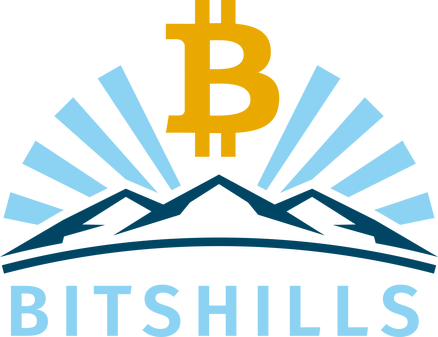Unlocking the World of Cryptocurrency Terms: A Glossary for Newcomers
If you're new to the world of cryptocurrency, you may find yourself overwhelmed by the jargon and technical terms thrown around. To help you navigate this complex landscape, we've compiled a comprehensive glossary of cryptocurrency terms. Whether you're curious about blockchain, wallets, or mining, this guide will provide you with a clear understanding of the key concepts in the world of digital currencies. So let's dive in and demystify the language of cryptocurrencies!
A-Z Cryptocurrency Glossary
A
- Altcoin: Any cryptocurrency other than Bitcoin, offering various features and use-cases.
- Atomic Swap: Technology for direct exchange of different cryptocurrencies without intermediaries.
- Airdrop: Free distribution of cryptocurrency tokens to numerous wallet addresses, often for promotion.
B
- Bitcoin (BTC): The first cryptocurrency, foundational to the concept of digital currency.
- Bitcoin Cash (BCH): A cryptocurrency that was created from a hard fork of Bitcoin.
- Blockchain: The technology behind cryptocurrencies, enabling secure and transparent digital transactions.
- Bull Market: A market condition where prices are rising, encouraging buying and optimism.
- Bear Market: A market condition characterized by falling prices and widespread pessimism.
- Block: The files where data pertaining to the Bitcoin network is permanently recorded.
C
- Cryptocurrency: Digital or virtual currencies using cryptography, independent of central banks.
- Consensus Algorithm: Protocols like Proof of Work or Proof of Stake used to achieve agreement on a blockchain.
- Cold Wallet/Storage: Offline cryptocurrency storage, enhancing security against online threats.
- Cross-Chain: Interoperability between two independent blockchains for sharing information and value.
D
- Decentralized Finance (DeFi): Financial services on blockchain without traditional intermediaries.
- Decentralized Applications (DApps): Applications on a decentralized network, avoiding single points of failure.
- Decentralized Exchange (DEX): A peer-to-peer cryptocurrency marketplace without intermediaries.
- Double Spending: The risk of a digital currency being spent twice, addressed by blockchain technology.
E
- Ethereum (ETH): A blockchain platform known for smart contract functionality.
- Exchange: Platforms for trading cryptocurrencies, either centralized or decentralized.
- ERC-20: A standard for creating and issuing smart contract tokens on the Ethereum blockchain.
- ERC-721: A standard for representing ownership of non-fungible tokens (NFTs), like those used in digital art and collectibles, on the Ethereum blockchain.
F
- Fiat Currency: Government-issued currency, contrasted with decentralized cryptocurrencies.
- Fork: Changes to a blockchain protocol, creating divergent paths.
- FUD (Fear, Uncertainty, and Doubt): Spreading negative, misleading, or false information to influence perception.
- Fungibility: The property of goods or commodities where individual units are interchangeable.
- FOMO (Fear Of Missing Out): The anxiety that an exciting or interesting event may currently be happening elsewhere, often aroused by posts seen on social media. In the context of cryptocurrency, it refers to the fear of missing out on the potential profits from an investment or trading opportunity.
G
- Gas Fees: Transaction fees on networks like Ethereum, compensating for computational energy used.
- Genesis Block: The very first block in a blockchain, marking the origin of the network.
- GPU (Graphics Processing Unit): A specialized processor originally designed to accelerate graphics rendering.
H
- Halving: An event in some cryptocurrencies where the reward for mining new blocks is halved.
- Hash Function: A cryptographic function converting input data into a fixed-size string of bytes.
- Hash Rate: A measure of computational power in cryptocurrency mining, indicating network security and efficiency.
- Hot Wallet: A digital wallet connected to the internet, convenient but more vulnerable to online threats.
- HODL: A term used in the crypto community to describe holding onto a cryptocurrency rather than selling it.
I
- ICO (Initial Coin Offering): A fundraising method where new cryptocurrencies are sold to raise capital.
- IEO (Initial Exchange Offering): A fundraising event managed by a cryptocurrency exchange.
- IPFS (InterPlanetary File System): A protocol for storing and sharing hypermedia in a distributed file system.
- Interoperability: The ability of different blockchain systems to work together and share information.
J
- JOMO (Joy Of Missing Out): The feeling of contentment when not participating in a cryptocurrency investment or trend, contrasting with the fear of missing out (FOMO).
- Javascript Object Notation (JSON): A lightweight data-interchange format, often used in blockchain and cryptocurrency technologies for data representation.
K
- KYC (Know Your Customer): A process for verifying the identity of clients, important in financial transactions.
- Key Pair: In cryptography, a set of two keys used together, one public and one private, to secure digital communications or transactions.
- Know Your Transaction (KYT): An extension of KYC, focusing on understanding and monitoring cryptocurrency transactions to ensure they are not involved in illegal activities.
L
- Layer 2 Solution: Secondary protocols built on top of a blockchain to improve scalability and efficiency.
- Ledger: A record-keeping system; in cryptocurrency, it refers to the blockchain where transactions are recorded.
- Liquidity: The ease with which a cryptocurrency can be bought or sold in the market without affecting its price.
- Liquidity Pool: A collection of funds locked in a smart contract to facilitate decentralized trading.
- Limit Order: An order to buy or sell a cryptocurrency at a specific price.
M
- Market Capitalization: The total value of all coins of a cryptocurrency in circulation.
- Mining: The process of validating transactions and creating new cryptocurrency units.
- Mining Pool: A group of cryptocurrency miners who combine their computational resources to strengthen mining chances.
- Multi-Signature (Multi-Sig): A digital signature scheme requiring multiple keys to authorize a transaction.
- Maker-Taker Fees: Fee models used on cryptocurrency exchanges to encourage market liquidity. Makers provide liquidity by creating limit orders, and takers remove liquidity by executing against these orders.
N
- Node: A computer on a blockchain network involved in validating and relaying transactions.
- NFT (Non-Fungible Token): Unique digital assets representing ownership of specific items or content on a blockchain.
- Nonce: A number only used once in a cryptographic communication, often a random or semi-random number issued in an authentication protocol to ensure that old communications cannot be reused.
O
- On-Chain Transaction: A transaction recorded on the blockchain itself, visible to all.
- Off-Chain Transaction: A transaction not recorded on the blockchain, often faster and cheaper.
- Oracle: Services that provide smart contracts with external information.
- Oracles Problem: The challenge of providing reliable and trustworthy external data to smart contracts.
P
- Public & Private Key: Cryptographic keys for secure cryptocurrency transactions.
- Proof of Work (PoW): A consensus mechanism where miners solve complex puzzles to validate transactions.
- Proof of Stake (PoS): A consensus mechanism where validators are chosen based on their coin holdings.
- Proof of Authority (PoA): A consensus mechanism giving a single private key the authority to generate blocks.
- Proof of Burn (PoB): A consensus algorithm where miners ‘burn' a portion of cryptocurrency to gain the right to mine new blocks.
- Paper Wallet: A form of cold storage where a private key is printed on a piece of paper.
Q
- Quantum Computing: A type of computing using quantum-mechanical phenomena, such as superposition and entanglement, potentially impacting cryptocurrency security in the future.
- Quick Response (QR) Code: A type of matrix barcode often used in cryptocurrencies to easily share wallet addresses.
R
- Replay Attack: A network attack where a valid data transmission is fraudulently repeated or delayed.
- ROI (Return on Investment): A measure used to evaluate the efficiency of an investment in the cryptocurrency space.
- Ripple (XRP): A digital payment protocol and cryptocurrency known for its digital payment infrastructure and protocol.
- Rug Pull: A scam where cryptocurrency developers abandon a project and run away with investors' funds.
S
- Smart Contract: Automated contracts with terms directly written into code on a blockchain.
- Segregated Witness (SegWit): A Bitcoin protocol upgrade for improved scalability.
- Staking: Holding cryptocurrency in a wallet to support network operations and earning rewards.
- Side Chain: A separate blockchain attached to a parent blockchain via a two-way peg.
- Stablecoin: A cryptocurrency with value pegged to a stable asset like gold or fiat currency.
- Seed Phrase: A series of words providing access to cryptocurrency funds, critical for security.
- Soft Cap: The minimum amount of funds that a new cryptocurrency project aims to raise in an ICO or crowdfunding campaign.
- Sharding: A method used in blockchain networks to increase scalability by partitioning data.
T
- Tether (USDT): A popular stablecoin pegged to the US Dollar.
- Token: A digital asset issued on a blockchain, representing assets or utility within an ecosystem.
- Tokenization: The process of converting rights to an asset into a digital token on a blockchain.
- Transaction Fee: A fee paid to miners or validators for processing transactions on a blockchain.
- Total Supply: The total amount of coins or tokens that currently exist for a cryptocurrency, minus any coins burned.
U
- Utility Token: A token used to fund ICOs and can be used to purchase a product or service offered by the issuer.
- Unspent Transaction Output (UTXO): The amount of digital currency someone has left remaining after executing cryptocurrency transactions.
V
- Volatility: The degree of variation in the price of a cryptocurrency over time, indicative of risk and uncertainty.
- Validator: A participant in a blockchain network responsible for verifying and validating new transactions and blocks.
W
- Wallet: Digital storage for cryptocurrencies, key for managing and securing digital assets.
- Whale: An individual or entity that holds a large amount of a particular cryptocurrency, potentially influencing the market.
- Wrapped Tokens: Tokens representing a cryptocurrency from another blockchain, issued on a different blockchain.
X
- XRP: The digital asset native to the Ripple network, known for its role in facilitating fast and cost-effective cross-border transactions.
Y
- Yield Farming: Earning rewards by staking or lending cryptocurrency in DeFi.
Z
- Zero-Knowledge Proof: A method for one party to prove to another they know a value without revealing any information apart from knowing the value.
- Zcash (ZEC): A cryptocurrency focused on privacy and anonymity, using zero-knowledge proofs to secure transactions.
As the cryptocurrency industry continues to evolve, new terms will undoubtedly emerge. Staying up-to-date with these terms can help investors navigate this complex and rapidly changing landscape. Whether you're a seasoned investor or just starting out, understanding these key concepts is crucial for making informed decisions in the world of cryptocurrencies.



